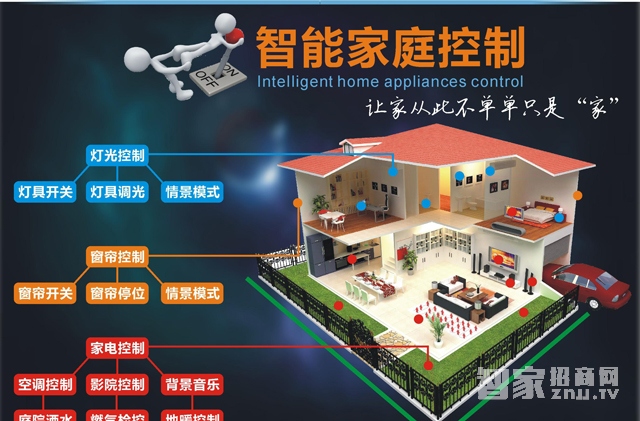Through a connected home network, a smart home system enables various devices within the system to communicate with one another, creating an intelligent, comfortable, and convenient living environment for users. Unlike traditional homes, smart home systems typically offer four key advantages that appeal to consumers. These benefits are precisely what make smart homes so desirable.
Four Key Advantages of Smart Home Systems
1. Versatility in Operation
One of the standout features of smart home systems is their operational flexibility. Users can control devices via smart touchscreens, traditional remotes, or even their smartphones and tablets. This versatility ensures that you can monitor and manage your home’s devices anytime, anywhere, regardless of the situation. Whether you're at work, on vacation, or simply relaxing at home, you can stay informed and in control.
For instance, home lighting can be customized according to personal preferences, offering multiple scenarios like "Home Mode." When you unlock your door, the system can automatically turn on the lights, open the curtains, and power up other necessary appliances. This level of automation not only enhances convenience but also reflects your lifestyle choices.
2. Seamless Device Interaction
Devices within a smart home system can connect seamlessly through the home network, ensuring they work together harmoniously to meet user expectations. Advanced communication protocols, such as ZigBee, enable smart devices to share data instantly and efficiently. For example, a smart energy management system can detect electricity rates and adjust the consumption of household appliances accordingly, helping save both energy and money.

3. Enhanced Functionality
Beyond basic functionalities like lighting and security, smart home systems can be tailored to suit diverse user needs. The software of the central control unit can be updated online, allowing new features and improvements to be added over time. In addition to smart lighting and home control, these systems can offer advanced services such as elder care assistance, child safety monitoring, emergency alerts, automated gardening, and pet monitoring.
By integrating cutting-edge technology, smart home systems cater to various lifestyles and preferences, making them future-proof and adaptable to evolving demands.
4. Robust Reliability
A smart home system relies on robust communication technologies like RF, ZigBee, WiFi, and bus systems to send commands to household devices for centralized management. The main control hub ensures stable performance, even during network fluctuations. With dual-network support, the system remains reliable and functional under most conditions. This level of stability gives users peace of mind, knowing their smart home will operate smoothly without interruptions.
The combination of these four advantages—versatility, seamless interaction, enhanced functionality, and reliability—makes smart home systems a game-changer in modern living. They transform daily routines into seamless experiences while fostering greater convenience and satisfaction among users.
Related Reading
Article: How Can Smart Homes Generate Revenue?
Recommended: Smart Home Stores, Smart Home Chips, Bluetooth Smart Home Solutions
24S eVtol Battery,24-Vl Battery,24S Battery Pack,24-Volt Battery
Shenzhen Jentc Technology Co., LTD , https://www.phenyee.com